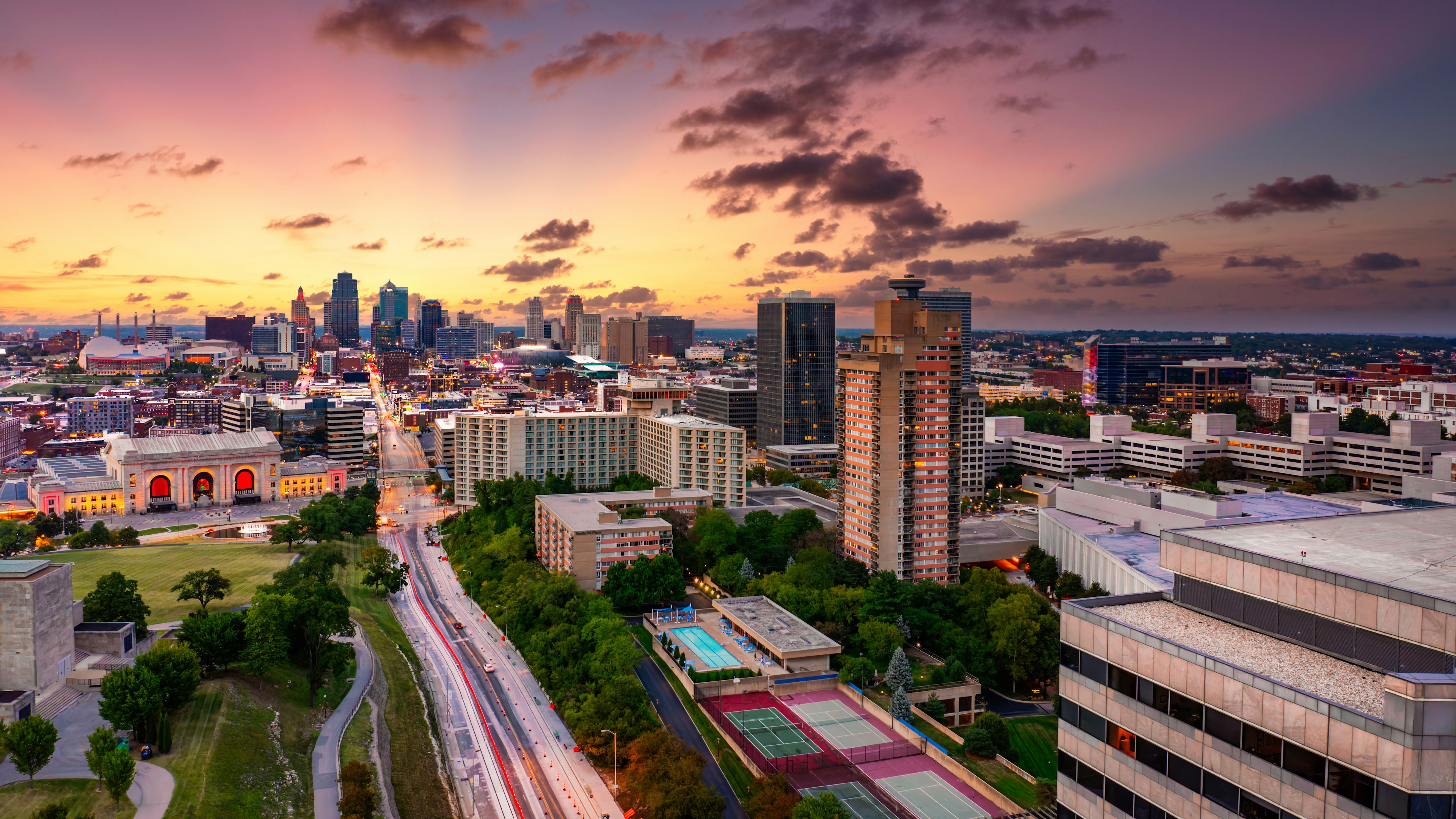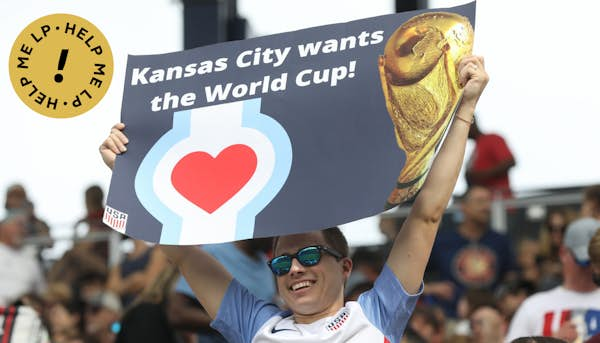It’s easy to understand why anyone who saw the 2022 FIFA World Cup in Qatar would catch a case of footy fever: the non-stop, unscripted drama of serious soccer is more nail-biting than anything you’ll find on Netflix. The coronation of Lionel Messi as World Cup king was the stuff of legends. The surprise success of Morocco will be remembered for decades to come. There’s a reason the World Cup is the world’s most-watched sporting event.
But if you want to get tickets to FIFA’s 2026 World Cup, you’ll have to wait.
FIFA’s website currently promises information is coming regarding ticketing for the 2026 tournament, and in the meantime, you can sign up to receive ticketing information when it becomes available. According to the United 2026 World Cup bid book, tickets will likely go on sale in 2025. Additionally, FIFA has secured a company called On Location, to offer fans a concierge experience at the tournament (think priority access and VIP experiences).
Still, there’s plenty to consider while waiting for tickets to drop. FIFA recently announced where the upcoming games will take place – and it’s never too early to start making travel plans.

When is the World Cup?
Unlike the 2022 Qatar World Cup, which scored millions of international viewers in November and December 2022, the next tournament will return to its usual summer slot, lasting from June 11 to July 19, 2026.
Where will the World Cup 2026 take place?
Games will kick off in 16 cities across North America, and for the first time in World Cup history, they’ll span three countries. Canada will host for the first time, the US will host for the second and Mexico will become the first country to host the World Cup three times.
The majority of matches will take place across the US, with 11 cities represented: Atlanta (eight games), Boston (seven games), Dallas (nine games), Houston (seven games), Kansas City (six games), Los Angeles (eight games), Miami (seven games), New York (eight games), Philadelphia (six games), San Francisco (six games) and Seattle (six games).
The remaining matches will be split between Mexico’s Guadalajara (four games), Mexico City (five games) and Monterrey (four games), along with Canada’s Toronto (six games) and Vancouver (seven games).

Which cities will host the most popular matches?
Soccer is improvisational – it’s challenging to forecast which games will make it into the pantheon of football favorites. But to ensure a festive atmosphere, check the match schedule and consider visiting a city hosting the tournament’s most spectacular events.
For the opening match, plan a trip to Mexico City around Thursday, June 11, when international teams will square off against one another at the Estadio Azteca.
The final match will rile up New Jersey’s MetLife Stadium on Sunday, July 19 – a 30-minute train ride from New York City. Don’t get confused by the stadium’s name: MetLife will be called the New York New Jersey Stadium for the duration of the event, honoring FIFA’s rule against corporate-sponsored facilities.
For those more interested in the love of the game than the fanfare of a grand finale, consider Dallas, Texas, as a home base for the events. The Big D will host nine matches – more than any other city participating in the tournament. Dallas will also host one of the semifinals, along with Atlanta. Miami will host the bronze final.
What can I do now to prepare for travel?
1. Decide where you’d like to travel. If there’s a particular team or match you want to see, let that information guide your travel plans. If you’re less concerned with a specific match, explore all possible locations. The 16 hosting cities represent a diverse swath of urban life in North America. There’s something for everyone – be it verdant Vancouver, BBQ-smoked Kansas City or sun-kissed Los Angeles. Traveling through an exciting metropolis can be just as rewarding as watching a world-class football game.

2. Get the proper travel documents. Unless you’re attending the tournament in your home country, ensure you have an up-to-date passport, valid for six months after any intended travel. (Your passport should be valid through January 2027 to attend the World Cup’s final match in July 2026.) Visitors from outside the host nations should also check Canada, Mexico and US visa requirements and obtain any necessary paperwork.
3. Start making a budget and saving money. Attending the World Cup gets pricey, particularly if you want to see the final match in NYC – a city known to be expensive. Although ticket information isn’t available for 2026, the cheapest tickets to Qatar’s final showdown cost roughly $200 for locals and $600 for visitors. Add airfare, on-the-ground transportation, hotels and food to the mix, and you’ll spend a pretty penny.
According to accommodation website Booking.com, traveling from New York to Doha for one week during the 2022 World Cup would’ve cost upwards of $4000 – and that doesn’t account for game tickets or food. If seeing Argentina fight for another World Cup title is a must-do for you, start setting aside money now.
Which destinations should be on my shortlist?
America’s budding soccer capital
Kansas City is positioning itself as ‘the soccer capital of America,’ as the city begins to plan for the six games it will host. Brush up on your familiarity with this midwestern gem. Arrowhead Stadium (home to the Kansas City Chiefs) and the National WWI Museum and Memorial (the site for the FIFA Fan Festival) have been pegged as the two sites where Kansas City will hold its World Cup matches.

The city has invested $600 million in the sport over the last 15 years, with the KC Current opening a new training facility and stadium downtown. Expect Kansas City to go all out for the World Cup, aiming to cement its reputation as the center of everything for US soccer fans.
Apart from soccer, Kansas City has plenty to do. It’s an incredibly livable city with a robust arts scene and great food. If you’re there and don’t go to Gates or Arthur Bryant’s for barbecue you’re missing out. City Market is another stop well-worth your time, too. Expect fresh-baked goods, excellent coffee and fresh produce from local vendors at the farmer’s market there; It’s a wonderful place to wander, shop and snack.
The Nelson-Atkins Museum of Art is another must-see with a sculpture garden and a collection that rivals those of more notable standouts around the world. In terms of where to stay, look to some new properties including the AC Hotel Kansas City and the Origin Hotel. The Truitt is another great, more boutique option with a beautiful design and central location.
The beautiful game, a beautiful place
Vancouver is also fighting hard for its place in soccer tourism come 2026. And with good reason. The city offers an incredible opportunity to take in both sport and nature during the World Cup. Having already hosted the Women’s World Cup in 2015, BC Palace Stadium is already known to soccer fans as a great venue to watch a match, with a retractable roof and seating for 54,000. It’s also easy to get to and not far from the rest of what Vancouver offers.
The city is a great blend of urban adventure and outdoor exploration with endless ways to spend your time outside of the tournament. Vancouver’s Indigenous history is rich, so carve out some time to visit the Bill Reid Gallery or grab a bite at First Nation’s restaurant Salmon n’ Bannock. For a beach day, head to beloved Second Beach or English Bay Beach, or take a hike on the West Coast trail, which is open May to September.
Vancouver is also as chic as it is outdoorsy, so expect your accommodations to match. We like the Pan Pacific and the Smithe House.
Cow town turned soccer HQ
FIFA has placed its tournament headquarters in Dallas, making it an obvious World Cup soccer destination. Catch one of the nine matches planned there at Dallas Stadium in Arlington, Texas. Dallas is a melting pot of a big Texas energy, incredible food (you can’t find better Tex-Mex) and a splash of cosmopolitan culture. From shopping to arts and eating, there is so much to explore. Plus, the soccer scene in North Texas is a force with FC Dallas as the hometown team and a roster of more than 175,000 registered soccer players across the region.
If you choose to stay near the stadium in Arlington, you’ll be uniquely positioned to take advantage of both Dallas and nearby Fort Worth while you’re in town. Each has its distinct vibe: Dallas is a little more metropolitan and Fort Worth has a bit more historic charm. Visit the Sixth Floor Museum and Dallas Museum of Art, as well as the Stockyards and the Kimbell Art Museum.

